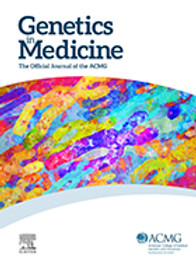Polygenic Embryo ELSI Research
The "PEER" Group
Qualitative and Quantitative Sociological Research on Stakeholder Attitudes
In Furrer et al, npj Genomic Medicine (2025), we surveyed 152 U.S. reproductive endocrinology and infertility specialists (REIs) on their views of PES. While most respondents (97%) were at least slightly familiar with PES, general approval of PES was low (12%), with the majority expressing disapproval (46%) or uncertainty (42%). A majority (58%) believed risks outweigh benefits, while only 16% felt benefits outweigh risks. Most clinicians (85-77%) were very or extremely concerned about low accuracy, confusion over results, false expectations, and eugenics. Nonetheless, when asked to vote on whether PES should be allowed, 44% would vote to allow it, 45% would vote to disallow it, and 10% would abstain from voting. REIs showed more support for PES when used to screen for physical and psychiatric health conditions (59-55% approving) rather than behavioral or physical traits (7-6% approving).


In Bach et al, Fertility and Sterility (2025), we examined attitudes towards regulation and governance of polygenic embryo screening amongst key stakeholders. We conducted interviews with 27 US-based reproductive endocrinology and infertility specialists and 26 patients who were currently undergoing in vitro fertilization or had within the past five years. Although most clinicians advocate for some form of regulation to ensure patient well-being, patients largely oppose restrictive measures, prioritizing procreative autonomy. Our results highlight a tension between the welfarist approach favored by clinicians and the libertarian approach favored by patients, underscoring the complexity of developing governance frameworks for PES that satisfies multiple stakeholder groups. Ultimately, our findings call attention to the need for ongoing dialogue among stakeholders to address the ethical and practical implications of PES and any potential regulation of it.
In Barlevy et al, Genetics in Medicine (2025), we utilized both quantiative and qualitative research methods to determine attitudes of multiple stakeholder groups (general public, REI clinicians, and IVF patients) regarding eugenic implications of PES technology. Results converged to suggest that PES for traits (e.g., intelligence or height) is more frequently associated with eugenics, and is often perceived unacceptable, whereas PES for medical conditions (e.g., cancer or schizophrenia) is perceived sometimes as acceptable. For some respondents, severity of the medical condition was an important modifier of attitudes towards acceptability and potential eugenic implications.


In Furrer et al, JAMA Network Open (2024), we surveyed more than 1,400 participants representing the wider U.S. population in age, gender, and race/ethnicity. Nearly three-quarters of respondents said they support using polygenic embryo screening (PES) to assess the risk of a future child developing a physical or psychiatric condition, such as heart disease, diabetes, or depress — but that number dropped considerably when people were first presented with various concerns for both individuals and society. Far fewer respondents approved the use of the technology to predict traits unrelated to disease, such as intelligence, height, and skin color. The results suggest that educating people about the current shortfalls and implications of PES — including regulating the promises that companies can make — will temper optimism and help ensure that as these technologies develop, they will be implemented in scientifically sound, ethical, and equitable ways.
In Barlevy et al, Journal of Assisted Reproduction (2024), we performed qualitative thematic analysis of semi-structured interviews of two groups of key stakeholders for polygenic embryo screening (PES): reproductive endocrinology and infertility specialists (REIs), and in vitro fertilization (IVF) patients. Strikingly, most clinicians were either unwilling to discuss or offer PES to patients or were willing to do so only under certain circumstances, while many patients expressed interest in PES. While clinicians and patients often held favorable views of screening embryos for physical or psychiatric conditions, clinicians tended to temper their positive attitudes with specific caveats. Clinicians also expressed negative views about screening embryos for traits more frequently than patients, who generally held more positive views. Specific considerations raised by clinicians and patients may help guide professional societies in developing guidelines to navigate the uncertain terrain of PES.


At the launch of our project in May 2021, we held a roundtable to bring together clinicians in reproductive endocrinology (REIs) and clinical geneticists with research scientists, lawyers, and ethicists to share views on PES across disciplinary boundaries. In Pereira et al, Human Reproduction (2022), we describe four clinically relevant issues identified by our multidisciplinary group: (i) the potential expansion of assisted reproductive technology (ART) services to a new pool of reproductively healthy individuals; (ii) patient requests for PES despite clinicians’ skepticism of whether there is sufficient evidence to support its clinical use; (iii) predicted disagreements between REIs and intended parents about how to specifically apply PES; and (iv) changes in REIs’ practices (e.g., the role of genetic counseling) that may be necessitated by widespread adoption of PES.